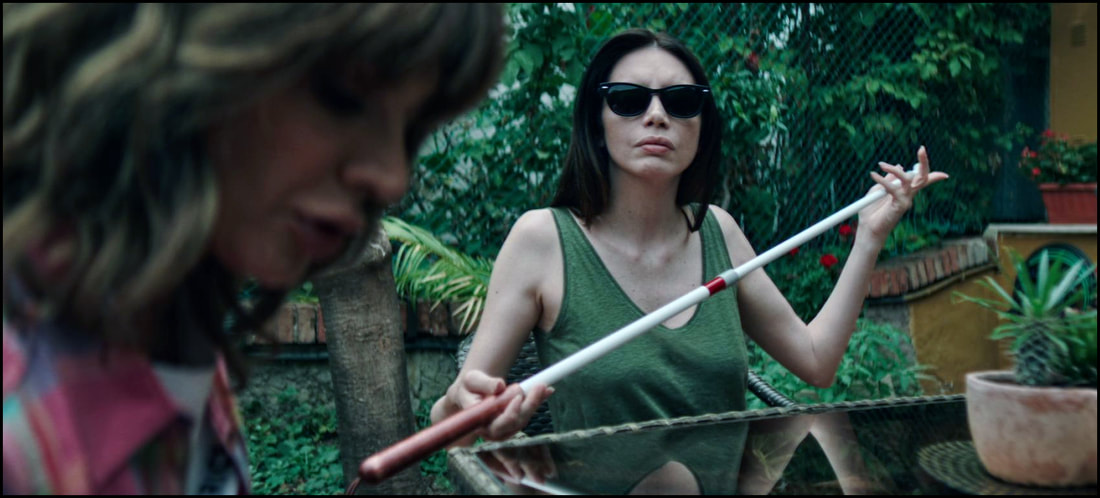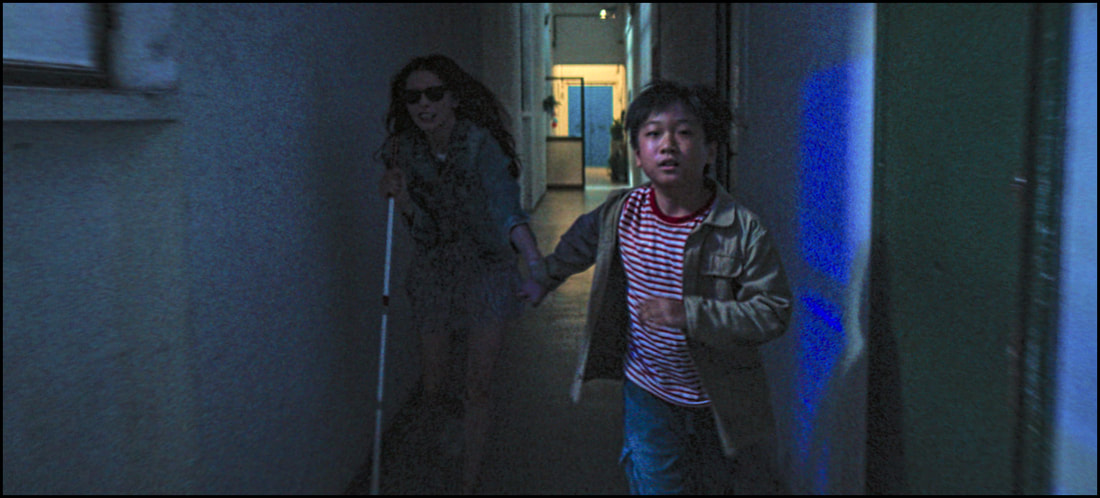With over six decades of work in the film industry as a screenwriter, director, and producer, Argento has woven a respectable number of tales – many of them thrillers with Horror and even soft-SciFi leanings – and managed to amass not only a good number of fans but also awards and acclaim along the way. I think it’s safe to suggest that he certainly put himself ‘on the map’ critically in the 1970’s with films like The Bird With The Crystal Plumage (1970) and The Cat O’ Nine Tails (1971) paving the way for some darker journeys such as Deep Red (1975) and Suspiria (1977). Though some of his work in the 1980’s may’ve veered a bit more into camp or cult territory – penning the screenplays for Demons (1985) and Demons 2 (1986) – he still continued his ongoing experimentation of telling stories about people in some fairly dark circumstances, taking them down the road to whatever fright awaits.
As for his reputation? He’s considered the Italian cinema version of Alfred Hitchcock … and that’s no small feat.
He’s back in the spotlight today with Dark Glasses (2022), directing from a script that he and long-time collaborator Franco Ferrini crafted. It’s another journey into the world of darkness – with a special twist – that’s not quite as interesting visually as it may’ve been on paper. Still, these are the risks that a great storyteller takes each and every time he steps behind the camera, as do the characters he creates.
(NOTE: The following review will contain minor spoilers necessary solely for the discussion of plot and/or characters. If you’re the type of reader who prefers a review entirely spoiler-free, then I’d encourage you to skip down to the last few paragraphs for my final assessment. If, however, you’re accepting of a few modest hints at ‘things to come,’ then read on …)
From the film’s IMDB.com citation:
“Diana, a young woman who lost her sight, finds a guide in a Chinese boy named Chin. Together they will track down a dangerous killer through the darkness of Italy.”
For all intents and purposes, I thought Dark Glasses was a bit of an incomplete meal. It may have a few moments here and then that feel authentic to Argento’s pedigree, but the story isn’t so much muddled as it feels a bit undercooked.
Diana (as played by Ilenia Pastorelli) lives her nights and days as a high-priced prostitute servicing the naughty needs of men, but she also maintains her own personal code of ethics. Refusing to engage in some of the more brutal sex acts, she’s been able to walk away from the most demanding clientele and not have it detrimental to her private career. But one night after concluding a bit of carnal business, she finds herself pursued by a killer sought by police in connection with the slaying of another call girl; and she winds up in an automobile accident that both robs her of her sight as well as orphans a young Chinese boy named Chin. Eventually – out of guilt for her part in the crash – she seeks out Chin, and – through a set of circumstances – she winds up befriending him as a temporary guardian.
As a thriller, Dark Glasses just isn’t as interesting.
While the chief culprit here could be the fact that it’s central driving motivation – a killer of prostitutes – just isn’t that original, what makes it worse is that Argento and Ferrini’s script never clearly spells out exactly why our murderer is doing what he does. There are hints that he harbors some resentment over being offended by these ladies – his day job is working with dogs, so he tends to smell of the animals – but this is never ironed out sufficiently enough (not for this viewer, anyway) for me to be certain. When the film’s primary source of action lacks a narrative center, I think events unspool in a way that lacks a cohesive logic – no cause and effect – and this weakens the entire experience.
As for the players?
To my delight, I found Pastorelli a bit refreshing. As a woman, she certainly is easy on the eyes – helpful in this role given her day job – and there’s this almost authoritarian approach to all of it. While clearly in service of men, she’s not someone to be trifled with, setting out the expectations of what she will and will not do; and she’ll even go toe-to-toe with a man who tries to cross that line. Once she’s blinded by the accident, the actress conveys how this young woman is reduced to a shell of her former self. The narrative irony of being a woman who thrives on being ogled now having to struggle with the loss of sight itself puts Diana in her lowest possible place; and I thought Pastorelli conveyed this and the battle to recover quite nicely.
However, there’s just not enough in the film to truly elevate all its parts into a truly rewarding whole. Far too much of it is presented routinely – almost as if everyone was coasting on autopilot and the audience was still waiting for liftoff – and it lacked a true spark of inspiration or even originality in too many places. A disappointment but not a complete loss.
Dark Glasses (2022) was produced by Urania Pictures S.r.l., Getaway Films, Rai Cinema, and several other noted participants. (If you want a full listing, just head on over to IMDB.com.) Based on promotional materials I’ve been provided, the film is available for streaming on multiple platforms presently. As for the technical specifications? While I’m no trained video expert, I thought the sights and sounds were very good, though a great deal of the finale takes place in the dark of night, making a few short sequences a bit difficult to see. It’s not enough to harm the picture; I just felt it worth mentioning.
Mildly recommended.
Though I wouldn’t consider myself an aficionado of Dario Argento, I have viewed a handful of his films – a few of them even during my tenure as editor-in-chief of SciFiHistory.Net. I’m not entirely sure that Dark Glasses matches up stylistically to his earlier efforts, but there might be a few moments that flourish in here. Performances range from – ahem – acceptable to good; but, all-in-all, this felt like a far too conventional affair given Argento’s reputation. Interesting … but, ultimately, probably forgettable in the scheme of things.
In the interests of fairness, I’m pleased to disclose that the fine folks at Shudder provided me with complimentary screening access to Dark Glasses (2022) by request for the expressed purposes of completing this review; and their contribution to me in no way, shape, or form influenced my opinion of it.
-- EZ



 RSS Feed
RSS Feed